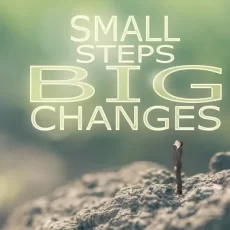An unpleasant, unforeseen event occurs in our life. Maybe an illness, or maybe something smaller, like a power outage. What is our natural, immediate response?
Greek philosopher Epectitus wrote about being able to differentiate between things that lie within our control and things that lie beyond. We can only control ourselves, our mind, our response to what happens to us. To let go of what is not in your power and to take control of that which is in your power – not our bodies, not our possessions, or our social status but our response to the occurrence, our mind and how it perceives the adversity. To not see things are merely good and bad things happening to you but accepting what has happened.
19th century philosopher, Fredrich Nietzsche coined the Latin phrase, ‘Amor Fati’ translating to a love of fate. He mentions not just accepting what has happened but to embrace it with passion, to love what fate has destined upon you. “My formula for human greatness is amor fati: that one wants nothing to be different, not in the future, not in the past, not for all eternity. Not only to endure what is necessary, still less to conceal it…but to love it…”
Each adversity brings with it an opportunity to be better, to understand your new limits, your endurance to pain. To show gratitude for one’s adversity is neither natural nor easy. Bad weather, being stuck in traffic, a delayed flight, an illness, having worked hard at a project for weeks only to know that it has been pulled by the client, political unrest in the country, failing economy, the list is endless – all these problems that we can’t control come with an aspect that we can. It is our response to these actions.
Nobel laureate Amartya Sen had been a star pupil in school. At the young age of 18, having just started his college education, he was standing at the threshold of higher knowledge ready to begin a new journey in his life. It was then that he was faced with a terrible twist of fate. Shortly after his 18th birthday, he observed a swelling in his mouth. The doctor tells him not to worry and dismisses it as nothing serious. Growing restless to have himself diagnosed and unconvinced of the benignity of the swelling, Sen asks his neighbor at the YMCA hostel in Kolkata who is a medical student for some books Sen can read to understand what plagues him. After studying the medical books diligently, Sen diagnoses himself with sqaumous cell carcinoma, commonly known as throat cancer but he is barely an adult and most certainly no doctor.
Armed with his diagnoses but being quite poor at the time, he visits yet another doctor at the reputed Carmichael Medical College only to have his diagnoses dismissed yet again and what is more – the doctor offers to cut it out immediately which by now Sen knew would be a big mistake, if his self-diagnosis is indeed correct. Through someone he knew, Sen is finally able to meet a doctor at the Chittaranjan National Cancer Institute. There Sen convinces the doctor to conduct a biopsy. The resultant diagnosis was serious but expected. Grade 2 sqaumous cell carcenoma, with a 15% chance of surviving 5 years.
Hiroshima was only 7 years old and the harmful effects of radiation were little known, Amartya Sen undergoes a painful and arduous treatment of holding a radium mould, held in a lead case which he would have to put in his mouth and hold still for eight hours a day for eight straight days – generating radiation of 8000 rad.
His body weakened with hours of radiation, though his cancer was destroyed, a lot else was destroyed with it but only physiologically. Despite knowing he might not survive to see another five years, about his mental state, Sen said, “Psychologically speaking, I was in the driving seat all the time, which gave me a great sense of dedication. I wasn’t even asking if I will make it. I was asking – what is the best I can do”. My agency aspect was more dominant at the moment – I was seeing myself as an agent rather than a patient.”
What were his options when he wasn’t diagnosed the first time? Go home and be convinced it was nothing? That was definitely the easier to process and less disturbing than any other thought. Later when the disease would have matured, he could have easily blamed his state on the two doctors he visited, who told him not to worry, that it was nothing. Instead, 18-year-old Amartya Sen, didn’t have the time or the willingness to lament about halcyon days when he was healthy or wish for more competent doctors. He embraced his fate and took action.
Amor fati must not be confused with passive acceptance for it is the very next step of acceptance. I may be terribly ill and none of the doctors so far have diagnosed me, now what? I have lost my job because of the pandemic, now what? I have been subject to human malevolence, I have been mistreated by my boss, now what? My relationship has ended suddenly but surely, now what?
The ‘now what’ aspect of facing an adversity, is what amor fati encompasses. How can I respond better? Next time you are faced with an adversity, try and look at the problem with a different lens. For on the flipside of each adversity, we have an opportunity. What will I learn about myself after having faced this fire? Will I get to know about the new limits of my resilience? My increased endurance for pain or will I learn to find comfort in a trying situation?
We can always look back and say years later, yes, having lost that friendship over something trivial taught me to value what matters more in life, I am glad that happened but amor fati gives you the toll you need to reach to that conclusion much earlier and to take control of your mind.
If a headache hinders our daily routine, maybe this is the opportunity to try that natural remedy we have been reading up on. Your head, neck and shoulders hurt after hours at the laptop, you try yoga and that helps. As one aspect of wellness overflows in the other, soon after yoga, you take up meditation and observe how it leads to a paradigm shift in your holistic wellbeing. It doesn’t take much for our actions to snowball into something big and consequential. What those actions might be, is our choice.
Fate has always tested mankind with adversities of huge proportions to minor inconveniences. Hold the belief that this is good for me – this has happened to me for a reason, it is up to me to explore the opportunity here. I must come out of this a better human.
Amor fati – not just acceptance, not tolerance but embracing the adversity for all the opportunities it holds.




